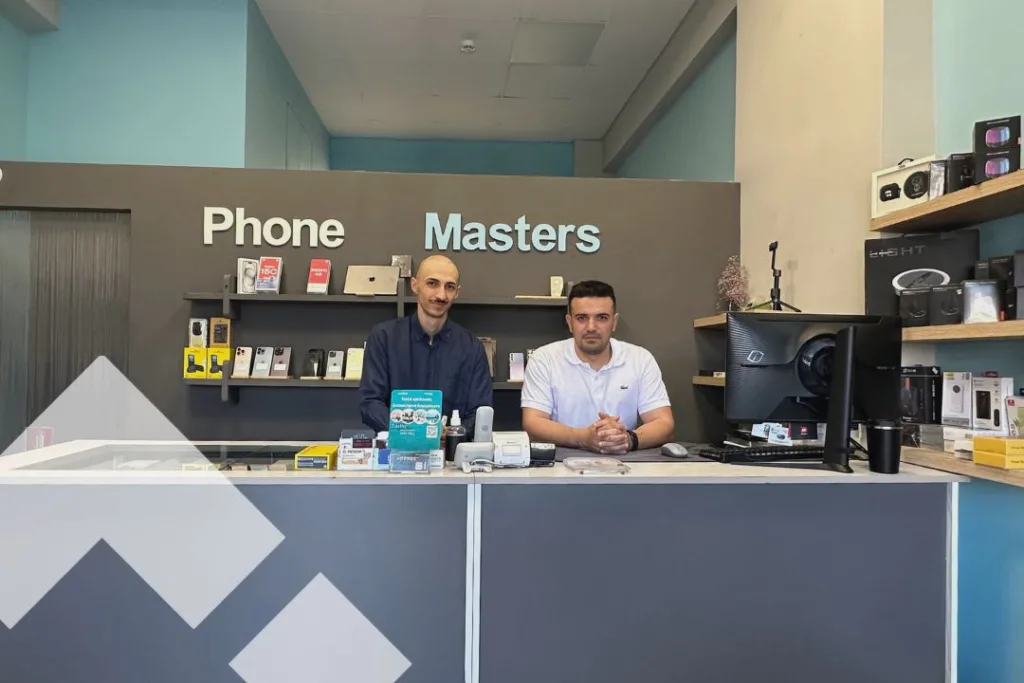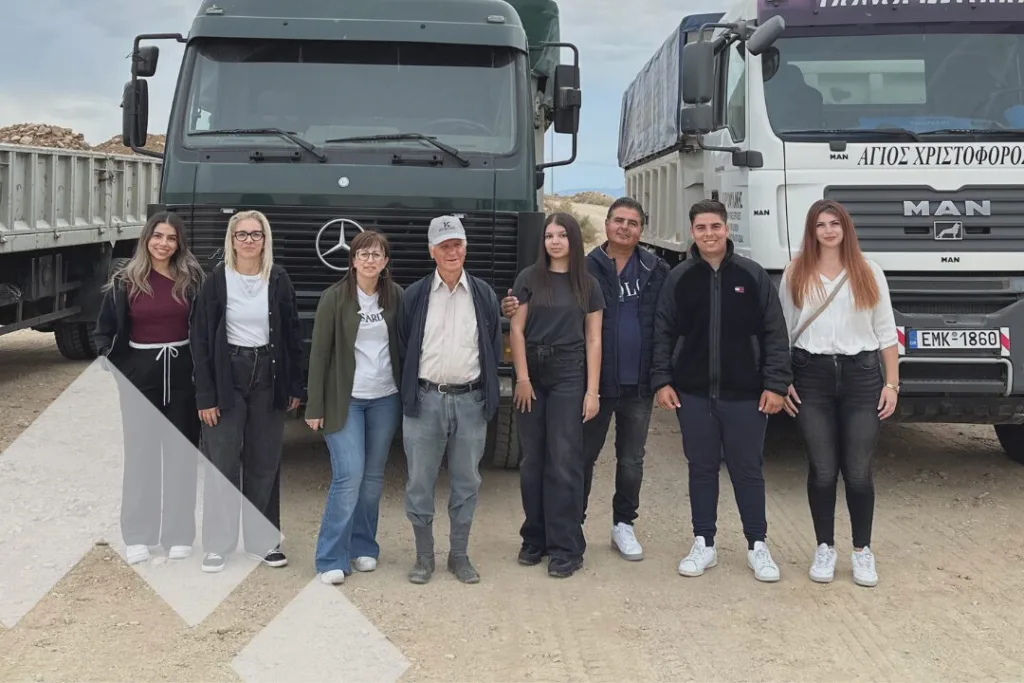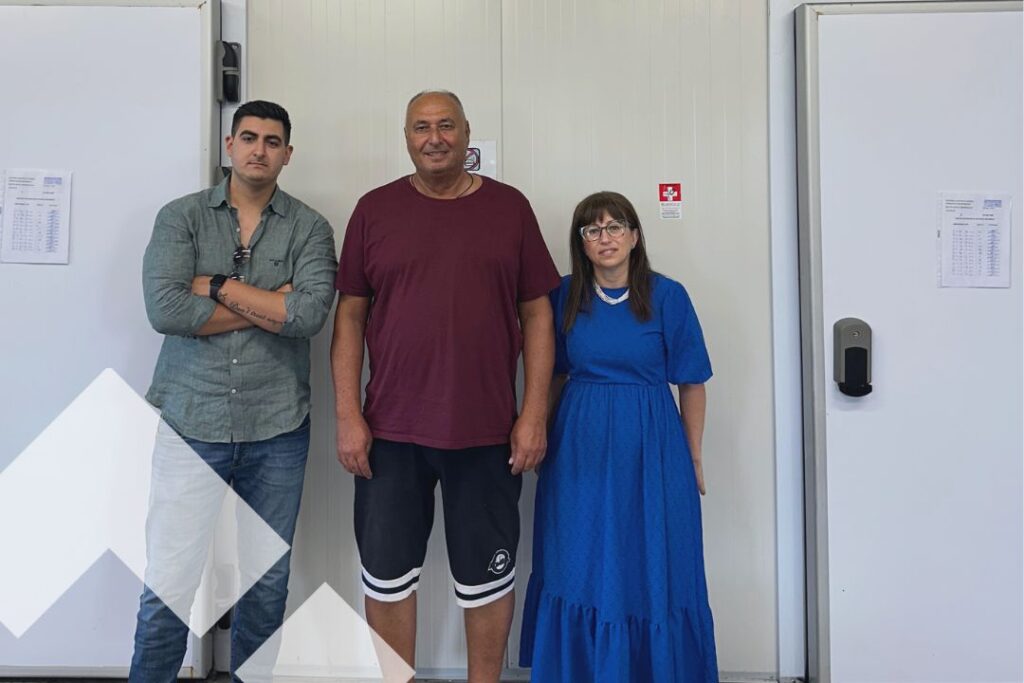The Marketing team of ena Development Consultants—Christos Pitiakoudis, Sofia Argyriadou, and Maria Karyofilaki—in the context of creating the #32 Business Story, spoke with representatives of the 6 partners of #DigiAgriFood, the first European Digital Innovation Hub in the agri-food sector in Greece.
The partners of the hub responded to a series of questions regarding the importance of digital transformation in agri-food, the technologies being utilized, the significant activities of the hub, and their roles in the project. They highlighted their commitment and enthusiasm for the initiative, as well as their expectations for the growth and future of the agri-food sector in Greece.
The #DigiAgriFood hub aims to strengthen the digital and green transformation of the entire agri-food value chain, delivering direct benefits to citizens, small and medium-sized enterprises (SMEs), and the public sector. It specializes in technologies such as Artificial Intelligence, Advanced Digital Skills, High-Performance Computing, Digital Transformation, and Interoperability, directly contributing to the missions and objectives of the “Digital Europe Programme 2021–2027.”
The role of ena Development Consultants, as Partner, Innovation & Communication Mediator of #DigiAgriFood, is to connect the needs of the real economy and businesses with the innovation produced by the research institutions participating in the hub, while simultaneously developing comprehensive communication strategies for the hub’s goals, activities, and achievements.
Consortium, #DigiAgriFoodled by Democritus University of Thracealso includes the University of Thessaly, the Ινστιτούτο Βιο-Οικονομίας και Αγρο-Τεχνολογίας (iBO) του Εθνικού Κέντρου Έρευνας και Τεχνολογικής Ανάπτυξης (ΕΚΕΤΑ), το Perrotis College της Αμερικανικής Γεωργικής Σχολής και η Region of Eastern Macedonia & Thrace..
Zisis Mamouris, Project Coordinator of #DigiAgriFood for the University of Thessaly, shared with us the biggest challenges that the agri-food sector faces today and the contribution of the hub in addressing them.
Here’s what he told us:
Zisis Mamouris, Project Coordinator of #DigiAgriFood for the University of Thessaly: The #DigiAgriFood hub can address the challenges of the agri-food sector through a holistic approach that includes collaboration among governments, local authorities, research institutions, businesses, and social groups.
The agri-food sector faces many significant challenges today, with climate change being paramount. Climate change manifests through extreme weather events, droughts, floods, and frosts, which reduce productivity and incomes and discourage the involvement of younger generations in primary production. At the same time, environmental impacts from the excessive use of natural resources and pollution from pesticides and fertilizers, as well as the reduction of arable land and deforestation for new developments, make the sustainability of agriculture the most critical challenge of our time.
We must not overlook that the increase in the global population, the continuously growing demand for food, and changes in dietary habits combined with rising living standards in many countries around the world, strain the adequate and safe production of food. Along with the increasing frequency of diseases in animals and plants, these factors pose critical challenges to the supply chain and overall food security
The global society has not yet found an overall effective policy to address social and economic inequalities in many regions of the world. Primary production continuously squeezes its profit and, in many cases, fails to serve the purpose for which it exists, while the majority of the profit ends up with intermediaries and retail sales, resulting in the continuous compression of consumers’ disposable income.
Partly, this is also due to limited and unequal access to modern technologies and markets for all farmers and producers, especially in developing countries, creating inequalities and difficulties in the further development of the agri-food sector. Additionally, changes in legislation and the continuously increasing requirements regarding food safety and environmental protection create new challenges for producers and businesses.
Addressing the major challenges in primary production requires a holistic approach that includes collaboration among governments, local authorities, research institutions, businesses, organizations, and social groups, aiming for a sustainable and resilient agri-food sector. This is the main goal of the #DigiAgriFood hub, as well as of the University of Thessaly through it, which can be achieved by offering solutions to the challenges faced by industry professionals through services based on digital technology. These services target reducing production costs, increasing productivity, mitigating the impacts of climate change, improving the supply chain, ensuring the safety of produced food, preserving livestock, and more.
Contributing to the same goal is also the creation of synergies among all agri-food stakeholders throughout the operation of the hub, serving as an interface point for all interested parties. This facilitates the identification of problems, the collaboration between companies and the research community to find appropriate solutions, and the promotion of these solutions to society.
- 1. Increase in Global Population: The growing demand for food due to population increase requires boosting food production while simultaneously maintaining quality and safety.
- 2.Food Security and Food Safety: Ensuring that all people have access to sufficient, safe, and nutritious food is critical. Threats such as animal and plant diseases and supply chain crises can disrupt food availability.
- Socioeconomic Inequalities: Access to modern technologies and markets is not equal for all farmers and producers, especially in developing countries. This creates inequalities and difficulties in the development of the agri-food sector.
- Legislation and Regulatory Framework: Changes in legislation and requirements for food safety and environmental protection can create additional challenges for producers and businesses.
- The shift in dietary preferences and the growing demand for organic products, plant-based foods, and other specialized food items require the adaptation of production and processing methods.
- Τεχνολογική Ανάπτυξη και Καινοτομία: Η υιοθέτηση νέων τεχνολογιών όπως η γεωργία ακριβείας, η βιοτεχνολογία, και η χρήση δεδομένων και τεχνητής νοημοσύνης μπορούν να αυξήσουν την αποδοτικότητα και τη βιωσιμότητα, αλλά απαιτούν σημαντικές επενδύσεις και εκπαίδευση.
Read the full #32 Business Story of #DigiAgriFood here.
The proposal for participation in the European Digital Innovation Hubs (EDIHs) program, under the acronym #DigiAgriFood and led by Democritus University of Thrace, with the involvement of ena Development Consultants, was selected by the European Commission within the framework of the “Digital Europe 2021-2027” program. Together with 135 other candidate hubs across Europe, #DigiAgriFood will form innovation ecosystems that generate added value for all citizens in sectors such as health, rural development, and digital governance.
Through the “Digital Europe 2021-2027” program, the European Commission supports the development of the above network of ecosystems, aiming to strengthen the European Union’s capabilities in the fields of High-Performance Computing (HPC), Artificial Intelligence (AI), Cybersecurity, advanced Digital Skills development, and the digital transformation and interoperability of Public Administration.






